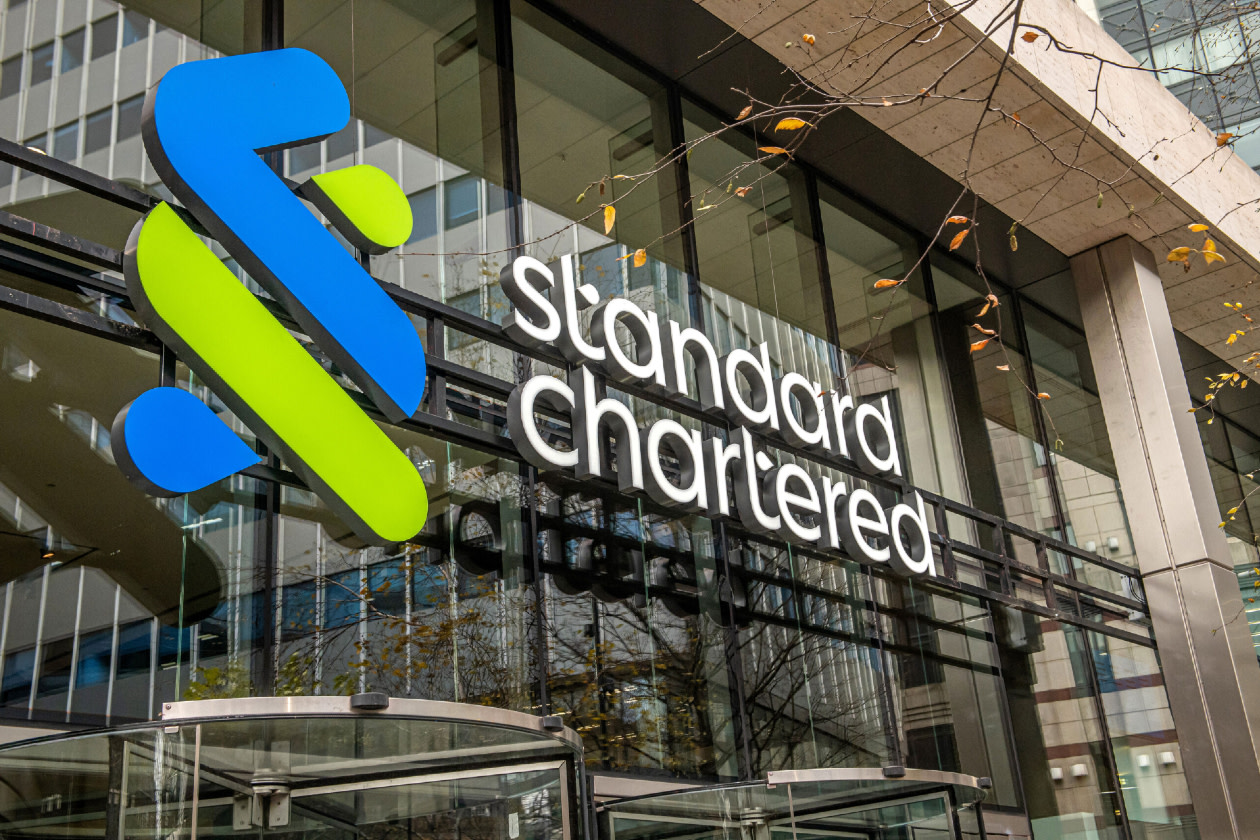Standard Chartered reported a 5% rise in third-quarter income to $5.1bn ($5.0bn expected), ignoring currency impacts. Growth was driven by non-interest income (which includes wealth management and investment banking).
Underlying profit before tax was up 10% to $2.0bn ($1.7bn expected). Credit quality remains strong, with lower impairments than expected.
The group’s CET1 ratio, a key capital measure, was 14.2% at the end of the period (target 13–14%). The $1.3bn buyback is underway, with $0.4bn used as of 30 September.
There was an upgrade to full-year guidance. Operating income for 2025 is now expected toward the upper end of the 5–7% range (previously bottom end), and growth from 2023–26 is still tracking toward the upper end of the same range.
The shares rose 2.2% in early trading.
Our view
Standard Chartered delivered a strong quarter accompanied by some upbeat commentary from management across all business lines. Upgraded guidance was good to see, but 7% profit growth implies a dip in the fourth quarter which seems unlikely, so we think this was conservative and expectations will be higher.
Medium-term guidance out to 2026 shows promising signs. Volume growth, cost cuts and a benefit from the structural hedge are expected to help deliver a return on tangible equity in excess of 13% in 2026 (2024: 11.7%). Markets have begun to price in that outcome, but we think there are still some risks as it’s highly reliant on strong growth from more volatile non-interest income.
Standard operates a sprawling business, both geographically and in terms of product ranges. This offers some nice diversification, but it comes at a cost. The only market it's really a leader in is Hong Kong, with it playing second fiddle to other names in wider Asian, African, and European markets.
Rates in Hong Kong have come back up after a rapid cutting cycle, which should ease some headwinds. But across the board, rates are expected to cause some softness next year, with Standard opting to be aggressive on pricing to protect margins.
But traditional banking (deposits and lending) is a relatively small part of the pie, with institutional banking in areas like trade finance, cash management, and trading making up the bulk of the operation. In retail banking, the focus is heavily skewed to the more affluent areas of the market where higher growth is on offer.
These are likely to be the business areas driving growth over the coming year. Standard has spent several years investing in the Financial Markets and Wealth Management divisions to help drive income that’s a little less dependent on interest rates. These divisions are also less capital intensive, which gives a little more wiggle room for things like buybacks – though none are ever guaranteed.
The balance sheet’s in a good place, and there are growth drivers to work on. Management has done a decent job of spelling out the moving parts, and we think areas like Asian wealth management are an attractive segment to fuel growth.
That said, there’s still work ahead to convince markets that it can consistently deliver, and with a lot of optimism now priced in, we think other names in the sector offer better near and longer-term outlooks.
Environmental, social and governance (ESG) risk
The financials sector is medium-risk in terms of ESG. Product governance is the largest risk for most companies, especially those in the US and Europe with enhanced regulatory scrutiny. Data privacy and security are also an increasingly important risk for banks and diversified financial firms. Business ethics, ESG integration and labour relations are also worth monitoring.
According to Sustainalytics, Standard Chartered’s management of material ESG issues is strong.
Standard’s strong programs and policies are offset by involvement in multiple controversies, reducing its management score. However, the bank has improved disclosure in areas like data privacy, security, and product governance. It introduced external cybersecurity assessments designed by the Bank of England and Prudential Regulation Authority, and has management in place to ensure responsible product offerings. Improvement areas include lack of transparency in gender pay, high employee turnover, and poor integration of ESG into asset management.
Standard Chartered key facts
All ratios are sourced from LSEG Datastream, based on previous day’s closing values. Please remember yields are variable and not a reliable indicator of future income. Keep in mind key figures shouldn’t be looked at on their own – it’s important to understand the big picture.
This article is original Hargreaves Lansdown content, published by Hargreaves Lansdown. It was correct as at the date of publication, and our views may have changed since then. Unless otherwise stated estimates, including prospective yields, are a consensus of analyst forecasts provided by LSEG. These estimates are not a reliable indicator of future performance. Yields are variable and not guaranteed. Investments rise and fall in value so investors could make a loss.
This article is not advice or a recommendation to buy, sell or hold any investment. No view is given on the present or future value or price of any investment, and investors should form their own view on any proposed investment.


